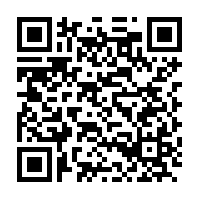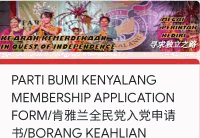
The story of the Malaysia that was supposed to be, but never happened, because of the unfulfilled promises of the Malaysia Agreement 1963.
Today we celebrate our first Malaysia Day as a “new Malaysia”. But two of the three parties that helped create Malaysia might not have so much cause to celebrate.
FOR over 10 years, activist Zainnal Ajamain has been fighting a seemingly losing battle – to get his home state of Sabah the rights it was promised under the Malaysia Agreement of 1963 (MA63).
They would also probably be way more wealthy and developed than they are now, because they were promised a higher share of their petroleum revenue.
Despite them currently producing 60% of Malaysia’s petroleum, worth an estimated RM38bil in 2017, they’re only getting 5% of the revenue each. The original deal? Sabah was to receive two-fifths (or 40%) of its own net revenue. Sarawak was promised annual grants that would increase from RM3.5mil to RM21mil over four years, and the amount would be reviewed “in later years”. It never was.
“I think we’ve been cheated for over 50 years,” says Zainnal. “We’ve been developing based on policies set by Kuala Lumpur, not by us.
“Based on those policies, Kuala Lumpur will allocate us our funding even though the money came from us in the first place, through our oil and gas, timber and our income tax.”
Today, Sabah is the second poorest state in the country after Kelantan. Both Sabah and Sarawak continue to suffer from under-development and a lack of accessible healthcare and education.
To understand just how this all came about, we have to go back to 1963.
How it all went down
In order to persuade the Borneo Territories of Sabah and Sarawak to join Malaysia, MA63 included provisions to ensure autonomy of civil services, freedom of religion, and their own immigration control, in addition to the promise of development.
As founding partners, they were assured that there would be a review in a decade, in order to ensure the partnership was going as planned.
But that meeting never took place. In fact, it has never taken place.
What did take place, however, was the Petroleum Development Act (PDA) being passed in 1974, giving Petronas sole and exclusive ownership over the country’s oil and gas, most of which comes from Sabah and Sarawak.
The oil-producing states would receive cash payments in return, amounting to the aforementioned 5%, and the rates would thereafter be decided by “relevant parties”.
However, the PDA also states that Petronas is subject to the control and direction of the Prime Minister, which means the Prime Minister is, in effect, the only person who can change the rates - and those rates have not changed since.
Two years later, the Federal Constitution was amended. Sabah and Sarawak, the original stakeholders of Malaysia, saw themselves “demoted” from founding partners to the 12th and 13th states of Malaysia.
“We formed Malaysia because we wanted to form Malaysia. But instead in 1976, the clever people in KL went and put Sabah and Sarawak in Malaya. That’s wrong,” says Zainnal.
Sabahan lawyer and former PKR supreme council member Ansari Abdullah thinks the Federal Government was not solely responsible for the “downgrade”.
“It was passed by Parliament,” he says.
“The Sabah MPs at the time should have objected. But the state government and our MPs kept quiet. Likewise, Sarawak. So you cannot blame anybody but our MPs and state government at that time.”
But that wasn’t the only limitation Kuala Lumpur would pose on Sabah and Sarawak’s autonomy.
In 2012, the Federal Government passed the Territorial Sea Act which limits Sabah and Sarawak’s jurisdiction over their waters to three nautical miles (5.5km) from the coastline, away from most of the oil and gas fields.
Sarawakian politician Datuk Seri Nancy Shukri says the change was not approved by the state government, and called on the new Pakatan Harapan Federal Government to review the act.
“We are not asking for more – we are only asking for what is ours,” says Nancy.









